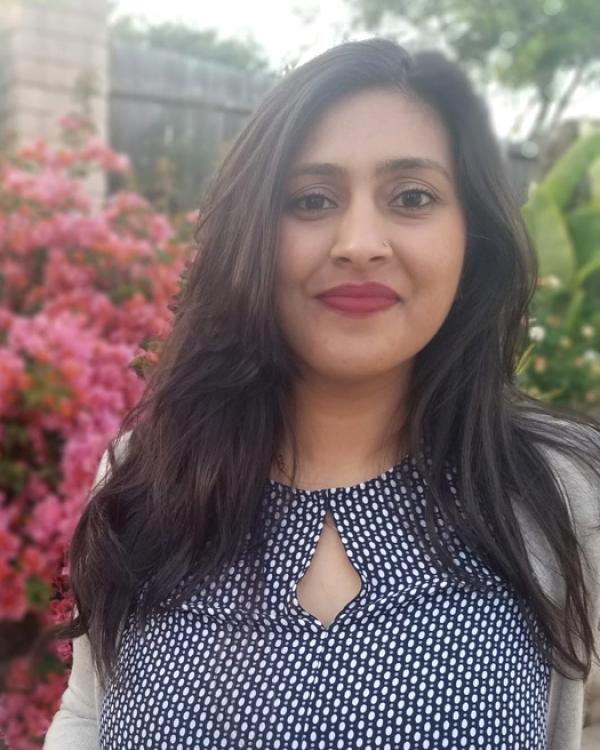
This week we caught up with Himadhari Sharma, a Counseling, Clinical, and School Psychology doctoral student, with an emphasis in Counseling Psychology, working under Dr. Andrés Consoli. Originally from the Twin Cities, Minnesota, she received an undergraduate in business with a specialization in marketing from the University of Minnesota in 2010. After that she worked in the healthcare service industry for four years. She completed her masters in psychology with an emphasis in clinical psychology from New York University (NYU) in 2017. There she conducted research in the realm of hearing voices, looking at various topics, such as stigma, within the general population. She also worked in an intensive outpatient clinic for eating disorder patients at Mount Sinai Hospital as well as completed an internship at the National Institute of Mental Health and Neuroscience (NIMHANS) in Bangalore, India. She has also worked with the Freedom Project, in Bangalore, India, with human trafficking victims. Himadhari has also served on the board of directors for myHealth, a non-profit reproductive and mental health clinic, as well as on the public policy board for the YWCA, Minnesota. Her current interests include multicultural psychology, access, and utilization for mental health services among minority populations, (especially Asian populations), cross-cultural/international psychology, as well as alternative treatment and therapy options.
GGSE: You have had such a wealth of experiences before you came to UCSB. How do some of those experiences help you as a doctoral student?
Sharma: I feel very fortunate to have such diverse experiences. My background in business and marketing has broadened my perspective, which helps me in both my clinical and research work. These experiences gave me a variety of transferable skills like communication, presentation development and delivery, as well as the ability to collaborate both within and outside of the department. My experiences working in healthcare, non-profit and international organizations have strengthened my empathy skills and cultural humility that I am able to apply in my clinical and research work. My work in consulting and owning a small business has helped me develop creative problem-solving skills, the ability to work independently, and time management skills. I draw a lot of inspiration and motivation from my diverse experiences.
GGSE: Your Masters from NYU is in clinical psychology, but you are working on a Ph.D. in counseling psychology--why the switch?
Sharma: Since there is so much overlap between the two emphasizes, as I was looking for doctoral programs my focus was more on finding a program that has a multi-cultural and social justice emphasis. Along with that, I was looking for an advisor I can align well with in terms of my research interest in increasing access and utilization of mental health services by marginalized communities. I am grateful for the experience I got in my masters, as I think it helped me develop a broader perspective of applied psychology.
GGSE: Tell us about a current research project--what are you working on?
Sharma: Currently, I am very focused on my pre-dissertation project which is a qualitative study exploring stories of mental health service access among Asian Indian Americans and Asian Indians living in the US. The project seeks to learn what made it possible and difficult for them to access mental health services, including any cultural or familial factors.
GGSE: If you have any free time, what do you do to relax?
Sharma: I do try to ground myself by spending time with my partner and Eddy (my dog). I like to play with Eddy on the beach. I love to see wildlife and animals in their natural homes. Dance is also a great stress-buster for me whenever I get a chance. I enjoy traveling, especially places I haven’t been to before and I hope to one day go to the Galapagos Islands!